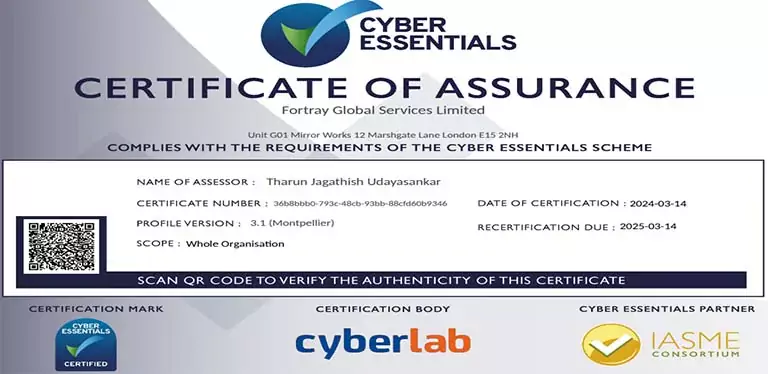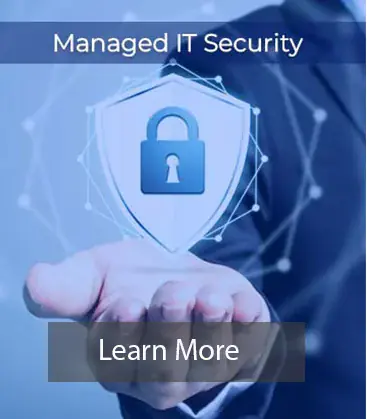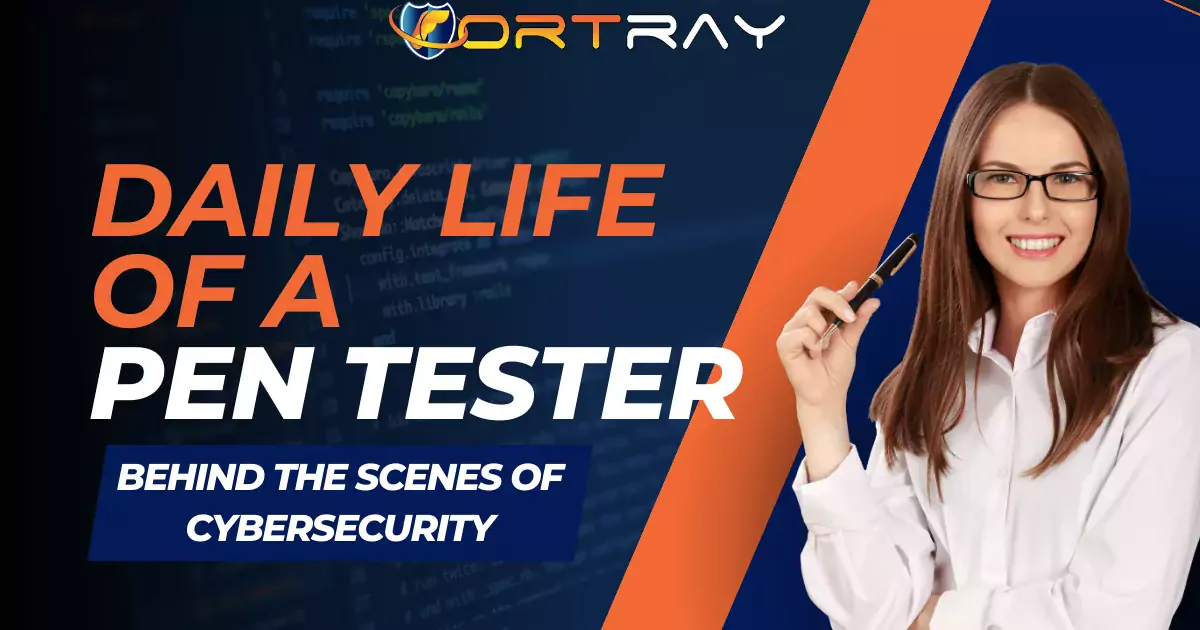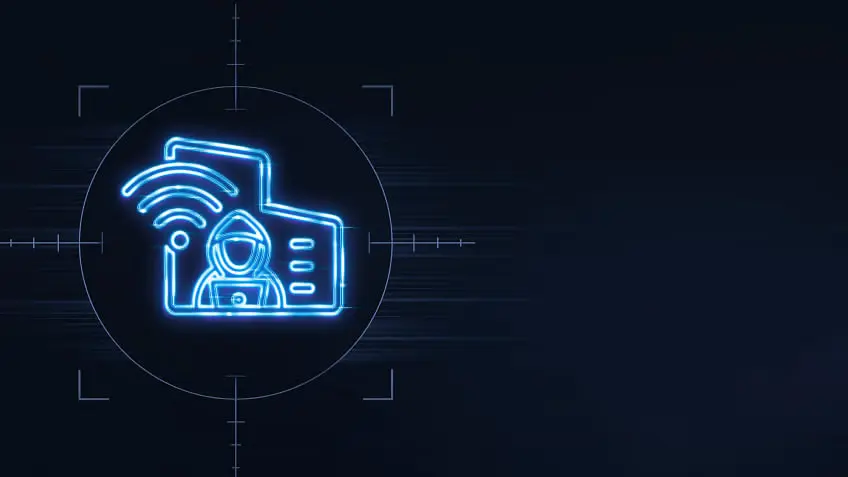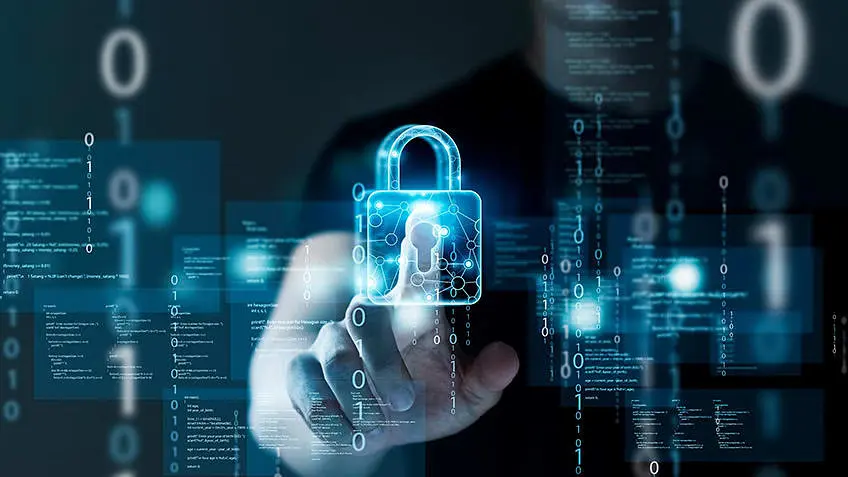- Understanding Cyber Threats: In writing the piece, Muhammad stresses the need to be as knowledgeable as possible and always ethical when conducting penetration testing.
- Educating the Next Generation:In line with promoting community engagement and acquiring more skills, Muhammad offers useful tips to aspiring cybersecurity experts to go deeper into the field with positive impacts.
Introduction
In this endless cycle of technologies, where anonymous threats lurk in every virtual corner, some experts protect our digital information from undesired interference. Today we get into the thrilling and quite essential world of penetration testing with an expert who hacks into systems to help.
Today, we are privileged to have Muhammad Waqas ud Din, a Penetration Tester at Fortray, with us. He not only shares his day-to-day experiences but also his journey into this exhilarating career. With his wealth of knowledge and experience, he is a valuable asset to any project, and his passion for safeguarding digital systems from breaches is truly inspiring.
Read through as Muhammad demystifies his line of work, which gives insights into the future of cybersecurity and tips for anyone who wishes to pursue the profession.
Questions and Answers
i. Hi Muhammad, how are you doing today? It’s great to have you here to share your experiences with us.
“I'm doing well, thanks! It’s a pleasure to be here and talk about what I love doing."
ii. For our readers who might not be familiar with the term, could you explain what a Penetration Tester does in simple terms?
“Sure, think of a penetration tester as a professional burglar, but instead of stealing, our job is to find weaknesses in a company’s security before the real bad guys do. We test systems to ensure they’re secure enough to prevent unauthorized access. It’s a bit like being a security consultant constantly trying to outsmart potential threats.”
iii. Well, that sounds really interesting. Can you share a bit about your background and what led you to a career in penetration testing?
"Well, I started out as most do in IT, messing around with computers in my teens. I got hooked on the thrill of cracking puzzles and understanding systems deeply, which naturally led me into cybersecurity. Penetration testing felt like a perfect fit—it's like being a professional hacker who’s actually the good guy."
iv. What does a typical day look like for you as a Penetration Tester at Fortray?
"Day-to-day, it's quite varied, which I love. I might start by scanning systems for vulnerabilities, and then I'll move on to trying out different attack strategies on test environments. Lots of coffee, lots of collaboration with the team, and always something new to learn."
v. What are the most common vulnerabilities you encounter in your penetration tests, and how do you address them?
"You’d be surprised how often it’s the basics that get overlooked—poor password policies, outdated software, misconfigured networks. My job is to find and fix these before someone with bad intentions does."
vi. What are your go-to tools and techniques for penetration testing, and why do you prefer them?
"I’m big on Kali Linux; it’s packed with tools for any scenario. And I rely a lot on automated scripts I’ve tweaked over the years. The key is not just using the tools but knowing why you’re using them."
vii. How do you stay ahead of evolving cybersecurity threats?
"Cybersecurity is a cat-and-mouse game. Hackers evolve, and so must we. I keep up through continuous training, webinars, and honestly, a lot of reading. You can’t slack off in this field."
viii. Can you describe one of the most challenging projects you've worked on? What made it challenging and how did you overcome those challenges?
"Once had a project where nothing seemed out of place, but intuition said otherwise. Turned out, there was a deeply embedded malware nobody had caught. It was a tough nut to crack, but super satisfying when we finally did."
ix. What trends are you currently seeing in the field of cybersecurity, particularly in penetration testing?
"The rise of AI in cybersecurity is fascinating. It’s like having a new kind of guardian angel, but it also opens new doors for vulnerabilities. Staying ahead of that curve is exciting."
x. What skills do you think are crucial for someone entering the field of penetration testing today?
"For newcomers, get solid with networking basics and scripting. And never stop being curious—ask 'why' a lot. It’s not just about breaking in but understanding the 'how' and 'why' it can be broken."
xi. How do you navigate the ethical considerations inherent in penetration testing?
"It's simple for me: do no harm. We have the skills to cause chaos but choosing to protect and serve is what makes us professionals. It’s a responsibility I take seriously."
xii. What advice would you give to someone aspiring to become a Penetration Tester?
"Dive into the community. Join forums, attend conferences, and participate in hackathons. Networking isn’t just about meeting people; it’s about exchanging knowledge."
xiii. Penetration testing can be intense. How do you manage work-life balance in such a high-stakes field?
"It’s crucial to unplug. I make time for my hobbies, play some guitar, hit the gym. Helps keep my mind sharp and stress levels in check."
xiv. What are your professional goals for the next few years? How does Fortray support your career development?
"I'm looking at specializing further into IoT security. Fortray supports this with training and opportunities to lead new projects. It’s an exciting time to advance."
Wrapping Up!
All in all, as the interaction with Muhammad Waqas ud Din comes to an end, one’s appreciation of penetration testing's place in the field of cybersecurity increases significantly. Since cybercrime is more recurrent—research shows that cyber-attacks have become more than 50% each year—Muhammad is among the targeted personnel facing several daily threats. Muhammad’s depth of knowledge and passion not only point out the difficulty and ethical dilemmas of the profession but also emphasize how important it is to be updated in a fast-track area of development. This shows an everlasting thirst for learning coupled with community work, which is quite prophetic for anyone who dreams of a cybersecurity career.
All in all, pondering today’s discussion, it can be stated that the role of cybersecurity specialists is becoming increasingly vital. With the continuous incorporation of digital communication systems into society, there is always an iron that protects us while in digital compounds. We also thank Muhammad for providing eminent information and his continued work to strengthen online structures. If anyone wants to follow Muhammad's path, then two things are quite clear: remain curious, follow ethics, and be active with the cybersecurity community. In any case, it is important to familiarize oneself with the difficulties and the means of protection within the IT field if one intends to work within this quickly growing sector or if one’s objective is to increase one’s own safety within the digital world.
All of us should be more careful as to concerns of cybersecurity as the world becomes more engrossed in the online one. Accepting the knowledge that comes with Muhammad might help to realize which steps we need to take in order to protect ourselves together with engaging and helping build the fundamentals of a safer cyber world. Considering joining Muhammad's line of work and becoming an expert penetration tester? Call Fortray today to enroll now!

